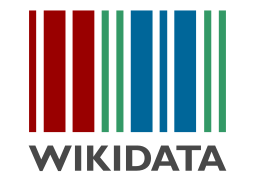
by Caroline Winter | 6 March 2020 | English, Observations, Observations and Responses
In April 2019, the Association of Research Libraries (ARL) published their White Paper on Wikidata: Opportunities and Recommendations. This white paper shares the findings of the ARL’s Task Force on Wikimedia and Linked Open Data, which was established in 2018 to investigate the potential of using Wikidata as a repository for libraries’ linked open data and to explore how libraries can use Wikidata to improve discoverability and community engagement.

by Caroline Winter | 13 December 2019 | English, Observations
As an open, non-proprietary, international, and discipline non-specific tool for identifying researchers, the ORCID iD is an important component of digital research infrastructure. For more information about ORCID iDs, see the observation ORCID: Connecting Research and Researchers.

by Caroline Winter | 13 December 2019 | French, Observations, Observations and Responses
En tant qu’outil ouvert, non propriétaire, international et non spécifique de discipline pour identifier les chercheurs, l’identifiant ORCID est une composante importante de l’infrastructure de recherche numérique. Pour plus d’informations sur les ID ORCID, voir l’observation ORCID: Connecter la recherche et les chercheurs.

by Caroline Winter | 29 November 2019 | French, Observations, Observations and Responses
En tant qu’outil de partage des connaissances et de création de réseaux entre les chercheurs et le public, les médias sociaux jouent un rôle important dans la science sociale ouverte. Pour la communauté universitaire, la participation aux médias sociaux peut être un moyen efficace de découvrir des recherches, de créer des réseaux professionnels et de s’engager avec la communauté au sens large. C’est également un espace dans lequel les chercheurs peuvent construire et gérer leur identité numérique (Hildebrandt et Couros; Marshall 2015; Willinsky 2010).

by Caroline Winter | 29 November 2019 | English, Observations, Observations and Responses
As a tool for sharing knowledge and building networks among researchers and the public, social media plays an important role in open social scholarship. For the scholarly community, participating in social media can be an effective way to discover research, build professional networks, and engage with the broader community. It is also a space in which scholars can construct and curate their digital identity (Hildebrandt and Couros; Marshall 2015; Willinsky 2010).



